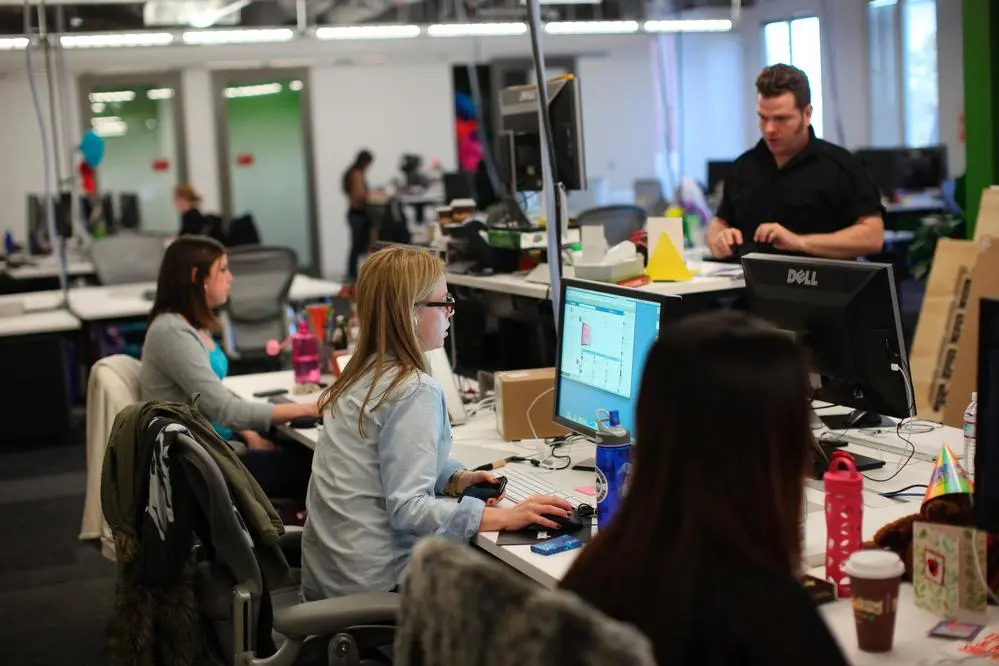PHOTO
Entrepreneurs in the United Arab Emirates have a higher fear of failure than in any other nation in the Middle East and North Africa (MENA) region, according to a new report.
The MENA Regional report published by Global Entrepreneurship Monitor, a research body which studies countries' approach to entrepreneurship, found that more than half of those surveyed have said that a fear of failure would prevent them from pursuing entrepreneurial activities.
A press release accompanying the report, which was published on Monday, stated that though the UAE, alongside Qatar, had the most enabling entrepreneurial framework in the region, early stage entrepreneurial activity in terms of starting businesses is less than a fifth of the number of people who have entrepreneurial intentions.
The study found that the UAE had the joint-lowest rate of total early-stage entrepreneurs (TEA) in the region at 5.7 percent, alongside Morocco. It said that although there were "strongly positive societal attitudes" towards entrepreneurship, only a quarter of people perceived there were good opportunities to pursue a business in their field.
By contrast, Saudi Arabia had very high levels of early-stage activity, but few of these fledgling firms make it to become established companies, which GEM said suggests a "poor level of new firm sustainability". The TEA rate is five times higher than the established business rate, it said.
The report added that rates of female participation in entrepreneurship was one of the best in the region, with eight women for every ten men engaged in entrepreneurship, compared to a regional average of five-to-ten.
Overall, the research found that the MENA region has one of the highest levels of positivity and intentions about entrepreneurship in the world, with almost three quarters of people stating that they see entrepreneurship as a good career choice and 38 percent of adults expressing an intention to start a business.
This fails to translate into early-stage entrepreneurial activity, though, and the number of total early-stage entrepreneurs (TEA) in the MENA region is 70 percent lower than the number expressing entrepreneurial intentions.
“The MENA region has experienced significant economic and social losses from poor economic management and conflicts since the 2011 Arab Spring,” said Ayman Ismail, Abdul Latif Jameel Endowed Chair of Entrepreneurship at the American University in Cairo School of Business, who is the report's lead author. “Our research shows that there is an urgent need to deploy the region’s substantial human, natural, and financial assets more efficiently through adopting economic and social policies that create long-term sustainable and inclusive economic growth.”
Meanwhile, a separate report published on Wednesday on small businesses in the Gulf region suggests that this picture may be about to change.
MENA Research Partners (MRP) said that the SME sector in the region has the potential to grow by 156 percent within the next five years, to a $920 billion sector employing up to 22 million people.
It said that while the Gulf currently only accounts for 36 percent of the MENA region's SME sector, generating 26 percent of GDP, it has the greatest potential for growth. In other developing markets, the SME sector is closer to 50 percent of GDP, MRP argued.
MRP chief executive officer Anthony Hobeika said: “Most of this growth is expected to come from key geographies such as the Kingdom of Saudi Arabia and the UAE, which are giving high priority to SMEs across many new regulations, policies and initiatives with the aim of boosting their share in the national economy.
"For example, in its Vision 2030, KSA has set a target to increase the share of SMEs in its GDP from a current 20 percent to 35 percent. The UAE, in its Vision 2021, set a target to increase the share of SMEs in its non-oil GDP from a current 60 percent to 70 percent.”
He said that current SME employment in the Gulf stands at about 17 million people.
In the UAE, many banks have faced criticism for their reluctance to lend the finance to SMEs.
Further reading:
© ZAWYA 2017
The MENA Regional report published by Global Entrepreneurship Monitor, a research body which studies countries' approach to entrepreneurship, found that more than half of those surveyed have said that a fear of failure would prevent them from pursuing entrepreneurial activities.
A press release accompanying the report, which was published on Monday, stated that though the UAE, alongside Qatar, had the most enabling entrepreneurial framework in the region, early stage entrepreneurial activity in terms of starting businesses is less than a fifth of the number of people who have entrepreneurial intentions.
The study found that the UAE had the joint-lowest rate of total early-stage entrepreneurs (TEA) in the region at 5.7 percent, alongside Morocco. It said that although there were "strongly positive societal attitudes" towards entrepreneurship, only a quarter of people perceived there were good opportunities to pursue a business in their field.
By contrast, Saudi Arabia had very high levels of early-stage activity, but few of these fledgling firms make it to become established companies, which GEM said suggests a "poor level of new firm sustainability". The TEA rate is five times higher than the established business rate, it said.
The report added that rates of female participation in entrepreneurship was one of the best in the region, with eight women for every ten men engaged in entrepreneurship, compared to a regional average of five-to-ten.
Overall, the research found that the MENA region has one of the highest levels of positivity and intentions about entrepreneurship in the world, with almost three quarters of people stating that they see entrepreneurship as a good career choice and 38 percent of adults expressing an intention to start a business.
This fails to translate into early-stage entrepreneurial activity, though, and the number of total early-stage entrepreneurs (TEA) in the MENA region is 70 percent lower than the number expressing entrepreneurial intentions.
“The MENA region has experienced significant economic and social losses from poor economic management and conflicts since the 2011 Arab Spring,” said Ayman Ismail, Abdul Latif Jameel Endowed Chair of Entrepreneurship at the American University in Cairo School of Business, who is the report's lead author. “Our research shows that there is an urgent need to deploy the region’s substantial human, natural, and financial assets more efficiently through adopting economic and social policies that create long-term sustainable and inclusive economic growth.”
Meanwhile, a separate report published on Wednesday on small businesses in the Gulf region suggests that this picture may be about to change.
MENA Research Partners (MRP) said that the SME sector in the region has the potential to grow by 156 percent within the next five years, to a $920 billion sector employing up to 22 million people.
It said that while the Gulf currently only accounts for 36 percent of the MENA region's SME sector, generating 26 percent of GDP, it has the greatest potential for growth. In other developing markets, the SME sector is closer to 50 percent of GDP, MRP argued.
MRP chief executive officer Anthony Hobeika said: “Most of this growth is expected to come from key geographies such as the Kingdom of Saudi Arabia and the UAE, which are giving high priority to SMEs across many new regulations, policies and initiatives with the aim of boosting their share in the national economy.
"For example, in its Vision 2030, KSA has set a target to increase the share of SMEs in its GDP from a current 20 percent to 35 percent. The UAE, in its Vision 2021, set a target to increase the share of SMEs in its non-oil GDP from a current 60 percent to 70 percent.”
He said that current SME employment in the Gulf stands at about 17 million people.
In the UAE, many banks have faced criticism for their reluctance to lend the finance to SMEs.
Further reading:
- UAEs Crescent launches 150mln corporate venture capital arm
- Saudi SMEs authority reviews regulations to enhance women empowerment
- Saudi SAGIA grants innovative licenses for entrepreneurs
- Saudi SMEs authority reviews regulations to enhance women empowerment
- UAE central bank says looking at crowdfunding regulation
© ZAWYA 2017





















